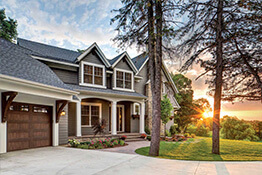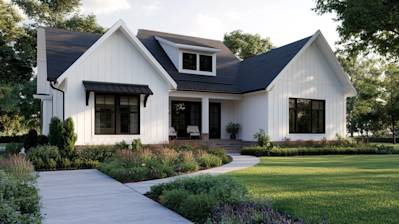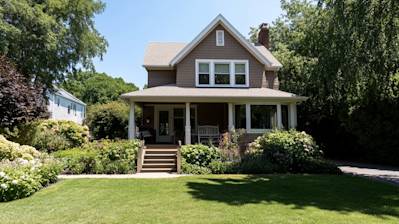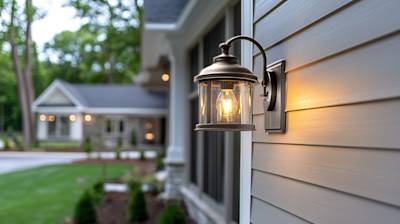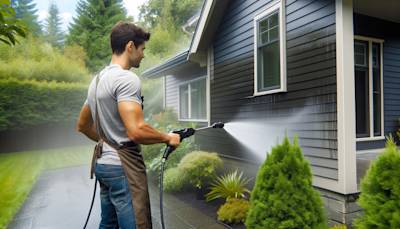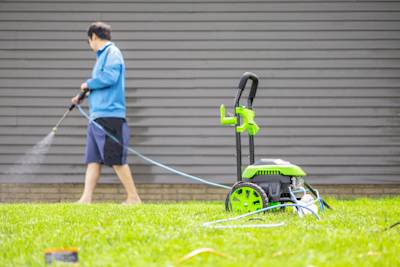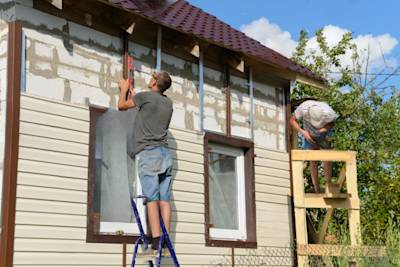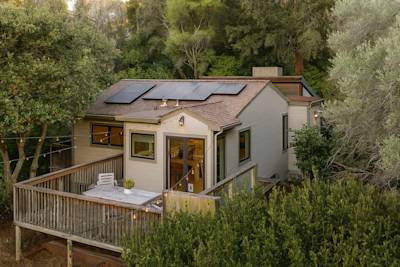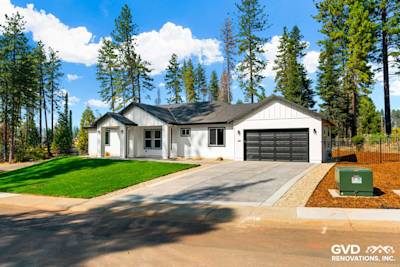Woodpeckers are beautiful and fascinating birds that can be found in many regions of the world. They are known for their unique behavior of drumming and pecking on trees, which is typically used to find food, establish territories, and attract mates. While woodpeckers are often admired for their beauty and unique characteristics, they can also cause significant damage to homes and trees. In this article, we will explore why woodpeckers peck on your house, how to prevent it, and what to do if they've already caused damage.
Why Do Woodpeckers Peck on Your House?
If you've noticed small holes appearing on the exterior of your home or on your trees, chances are that woodpeckers are the culprits. Woodpeckers peck on houses for various reasons, including drumming for mating and communication, searching for food, making a nest, and claiming territory.
Drumming for Mating and Communication
Woodpeckers use drumming as a way to communicate with other birds and attract mates. Male woodpeckers typically drum more frequently than females, and they use drumming to establish territories and attract mates. If you have a male woodpecker drumming on your house, it may be a sign that he's trying to attract a mate.
Searching for Food
Woodpeckers are primarily insectivores, and they will often peck on trees and houses to find food. If your house has any insects or larvae living inside the wood, woodpeckers may peck on your house to get to their food source.
Making a Nest
Woodpeckers will sometimes peck on houses to make a nest. While they typically prefer to make their nests in trees, they may turn to houses if there are no suitable trees in the area. If a woodpecker is pecking on your house to make a nest, you may notice them bringing in twigs and other materials to build their nest.
Claiming Territory
Woodpeckers are territorial birds, and they may peck on your house to claim their territory. If you have a male woodpecker pecking on your house, he may be trying to establish his territory and keep other birds away.
How to Prevent Woodpecker Damage
Preventing woodpecker damage to your home can be difficult, but there are several measures that you can take to discourage these birds from pecking on your house. Some of the most effective ways to prevent woodpecker damage include:
Install Siding or a Barrier
One of the best ways to prevent woodpecker damage is to install siding or a barrier on your house. This can be a more expensive option, but it is also one of the most effective. Woodpeckers typically prefer to peck on wood, so if you cover your house with a material like vinyl or aluminum siding, they will be less likely to peck on your house.
Remove Any Food Sources
If woodpeckers are pecking on your house to find food, one of the best ways to prevent them from doing so is to remove any food sources. This can include removing any insects or larvae that may be living inside the wood, as well as removing any bird feeders or other sources of food that may be attracting woodpeckers to your yard.
Cover Up Shiny Surfaces
Woodpeckers are often attracted to shiny surfaces, so if you have any shiny surfaces on your house, it may be a good idea to cover them up. This can include things like metal flashing, which can be covered with paint or other materials to make them less shiny.
Install Decoys or Scare Devices
Another effective way to prevent woodpecker damage is to install decoys or scare devices. These devices can be visual or auditory and are designed to scare woodpeckers away from your house. Some examples of visual devices include hanging shiny objects like CDs or reflective tape, while auditory devices can include things like a loud radio or a motion-activated sprinkler system.
Use Sound Deterrents
Sound deterrents are another effective way to prevent woodpecker damage. There are several types of sound deterrents available, including high-frequency sounds that are designed to irritate birds and keep them away from your house. These sound deterrents can be purchased at many home improvement stores or online.
What to Do If Woodpeckers Have Caused Damage
If woodpeckers have already caused damage to your home, it's important to act quickly to prevent the damage from getting worse. Here are a few things you can do:
Repair the Damage
The first thing you should do is repair any damage that has already been caused by the woodpeckers. This can include filling in any holes or cracks that have been created, as well as replacing any damaged siding or trim.
Cover Up the Damage
Once you have repaired the damage, it's important to cover it up to prevent further damage. You can cover the damaged area with a metal sheet, which can be painted to match the color of your siding or trim. This will help to deter woodpeckers from pecking in the same spot in the future.
Conclusion
In conclusion, woodpeckers can be a beautiful and fascinating addition to any backyard, but they can also cause significant damage to your home. By understanding the reasons why woodpeckers peck on your house and taking preventative measures, you can discourage these birds from causing damage to your property. If they've already caused damage, it's important to act quickly to repair and cover up the area to prevent further damage.
At GVD Renovations & Remodeling, we have years of experience in repairing and replacing damaged siding and wood caused by woodpeckers and other pests. We understand the frustration that can come with woodpecker damage, and we are here to help. If you need help repairing the damage or preventing it from happening in the future, contact us today for a free consultation.
Contact GVD Renovations & Remodeling for a Free Home Siding Consultation
If you're experiencing woodpecker damage to your home, don't wait until the damage gets worse. Contact GVD Renovations & Remodeling today for a free consultation on how we can help resolve and prevent further damage to your home. Our team of experienced professionals will work with you to find the best solution for your home and budget. Don't let woodpeckers destroy your home – contact us today!
This article is for general information only and not professional advice. Always consult a licensed contractor before making project decisions. Product details, specifications, or warranties may have changed since publication. Brand and product mentions reflect opinion, not endorsements or guarantees.
Tags: woodpecker holes, woodpecker damage, siding,
